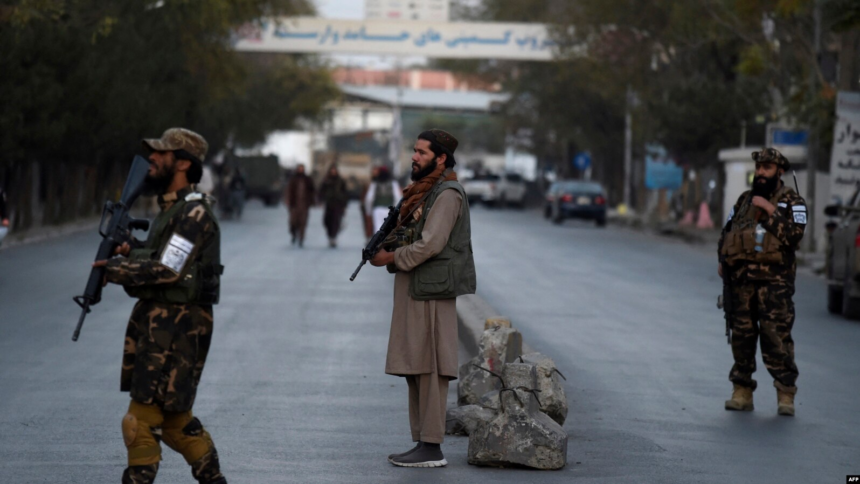RASC News Agency: The Taliban governor’s office in Kandahar has announced the convening of a high-level security summit aimed at “strengthening governance” and reinforcing the implementation of religious rulings under the pretext of crime prevention. The meeting attended by senior military, intelligence, and judicial officials underscores the Taliban’s efforts to consolidate power in Kandahar, the stronghold of their reclusive supreme leader, Hibatullah Akhundzada. According to the statement released on Wednesday, April 30, the summit brought together key Taliban figures, including the governor and his deputy, the provincial police chief, the heads of intelligence, the supreme court officials, and other senior members of the regime. The Taliban-appointed governor called for “serious and practical steps” to ensure full enforcement of court rulings and what the group described as “divine laws,” reflecting the regime’s persistent reliance on a rigid interpretation of Islamic jurisprudence.
The Taliban’s police commander in Kandahar stressed that security forces bear the responsibility of executing judicial verdicts swiftly and strictly, asserting that “oppressors must be punished, and the rightful must receive their due.” Such rhetoric is emblematic of the Taliban’s broader strategy of governing through coercion and fear, with little regard for international standards of due process or human rights. Gul Mohammad Sayyad, the head of the Taliban’s military court, and Hezbollah Kandahari, the chief judge of Kandahar’s primary court, reiterated the regime’s commitment to implementing all rulings in accordance with the Taliban’s version of Sharia law. This legal framework, enforced without independent oversight, has drawn widespread criticism for institutionalizing gender-based oppression, curtailing personal freedoms, and silencing dissent.
The summit comes amid a sweeping security crackdown across Kandahar. Multiple reports confirm that access to the city is now subject to heightened surveillance, with all entry points heavily controlled. Security personnel from outlying districts are only permitted entry after being fully disarmed, reflecting growing internal distrust within the Taliban’s own ranks. Earlier orders issued by Taliban police authorities had already banned all armed forces from entering the city with weapons or ammunition. Observers interpret these measures as part of a broader campaign to fortify the city and shield Akhundzada from both internal and external threats.
This latest security gathering reflects the Taliban’s ongoing campaign to institutionalize their authoritarian theocracy. Under the guise of enforcing order and religious piety, the regime continues to suppress civil liberties and dismantle any remnants of democratic or pluralistic governance. As Kandahar transforms into a fortress of clerical rule, human rights experts warn that the Taliban’s expanding apparatus of repression poses a grave threat not only to Afghanistani citizens but to regional stability as a whole.






